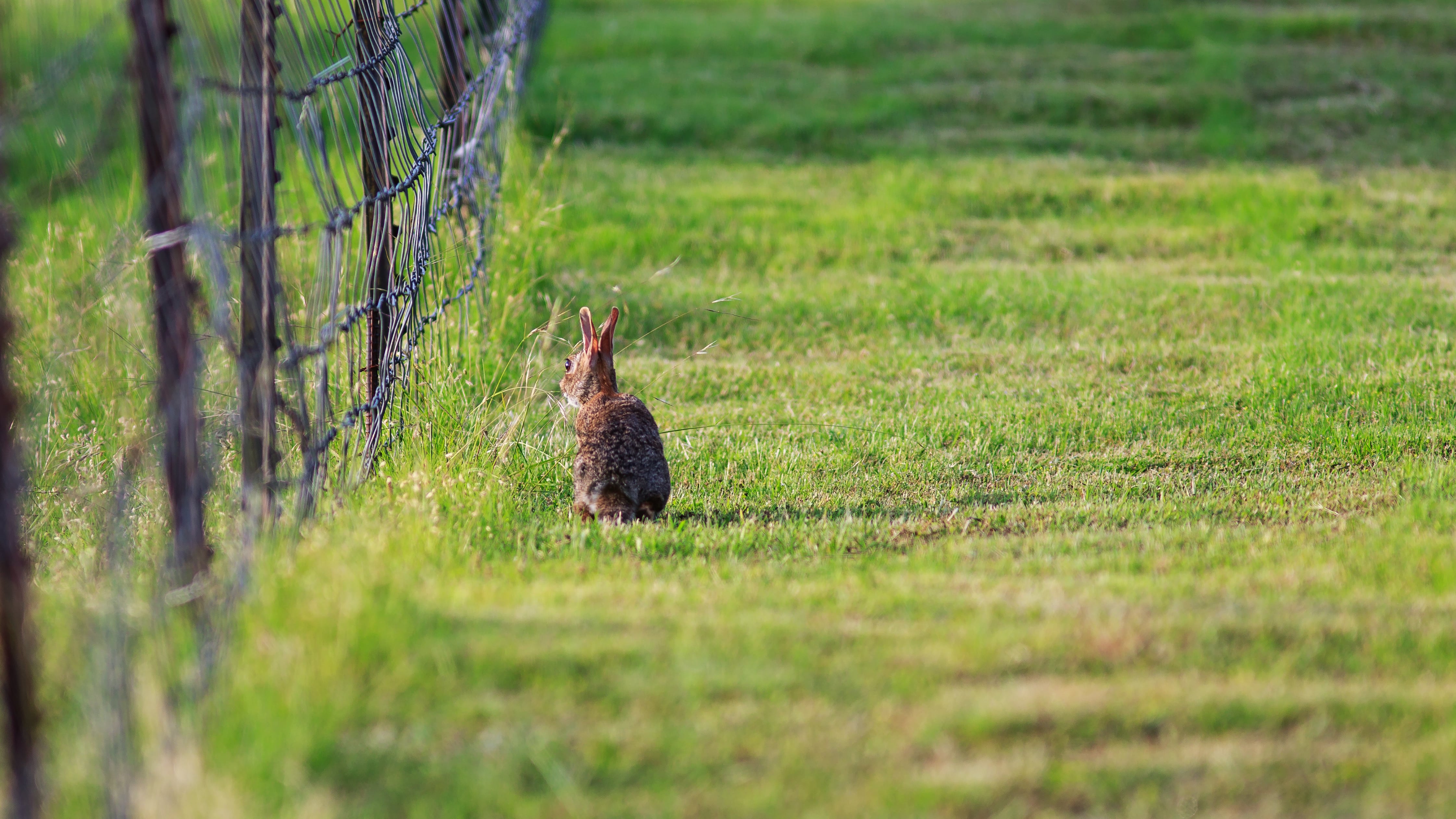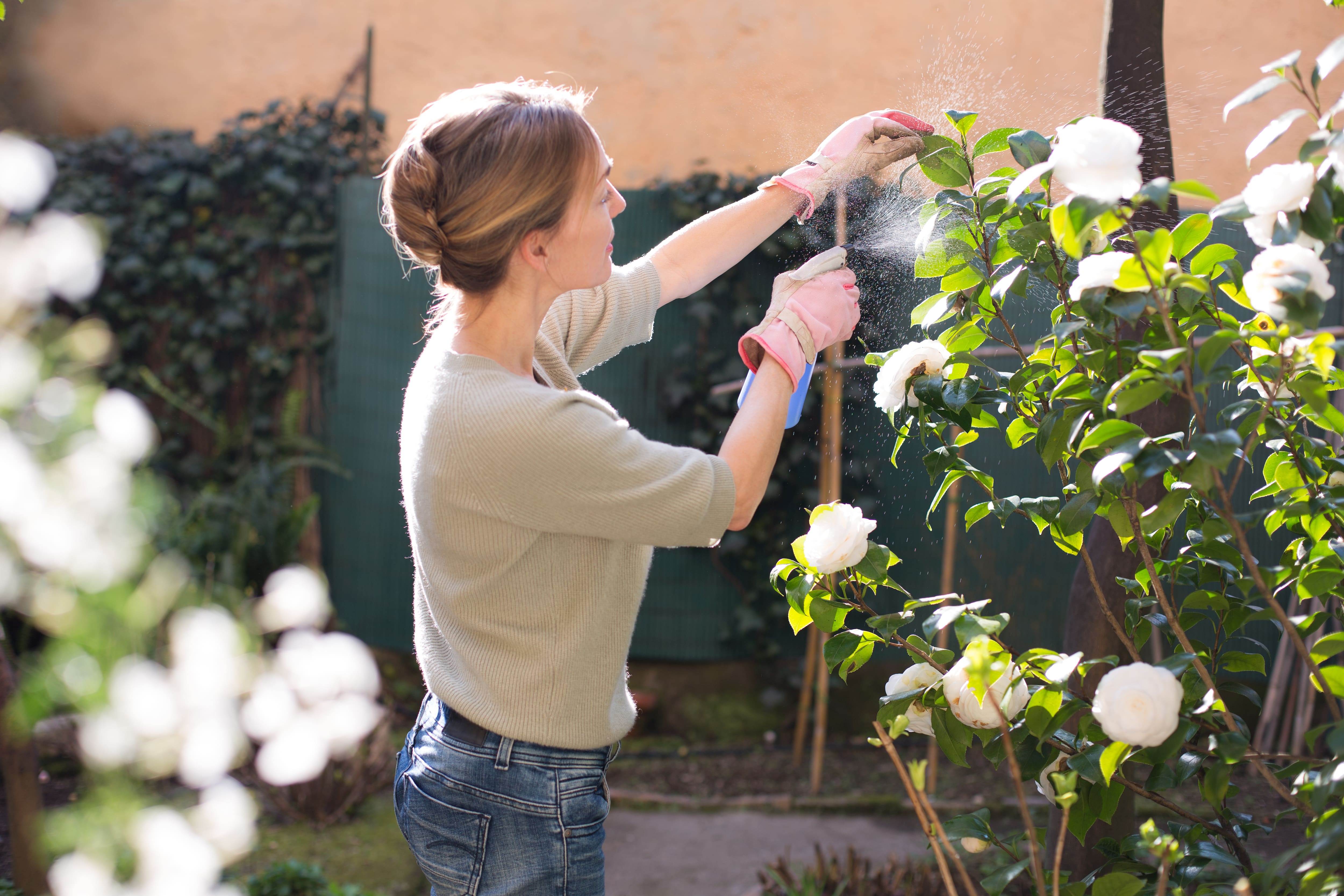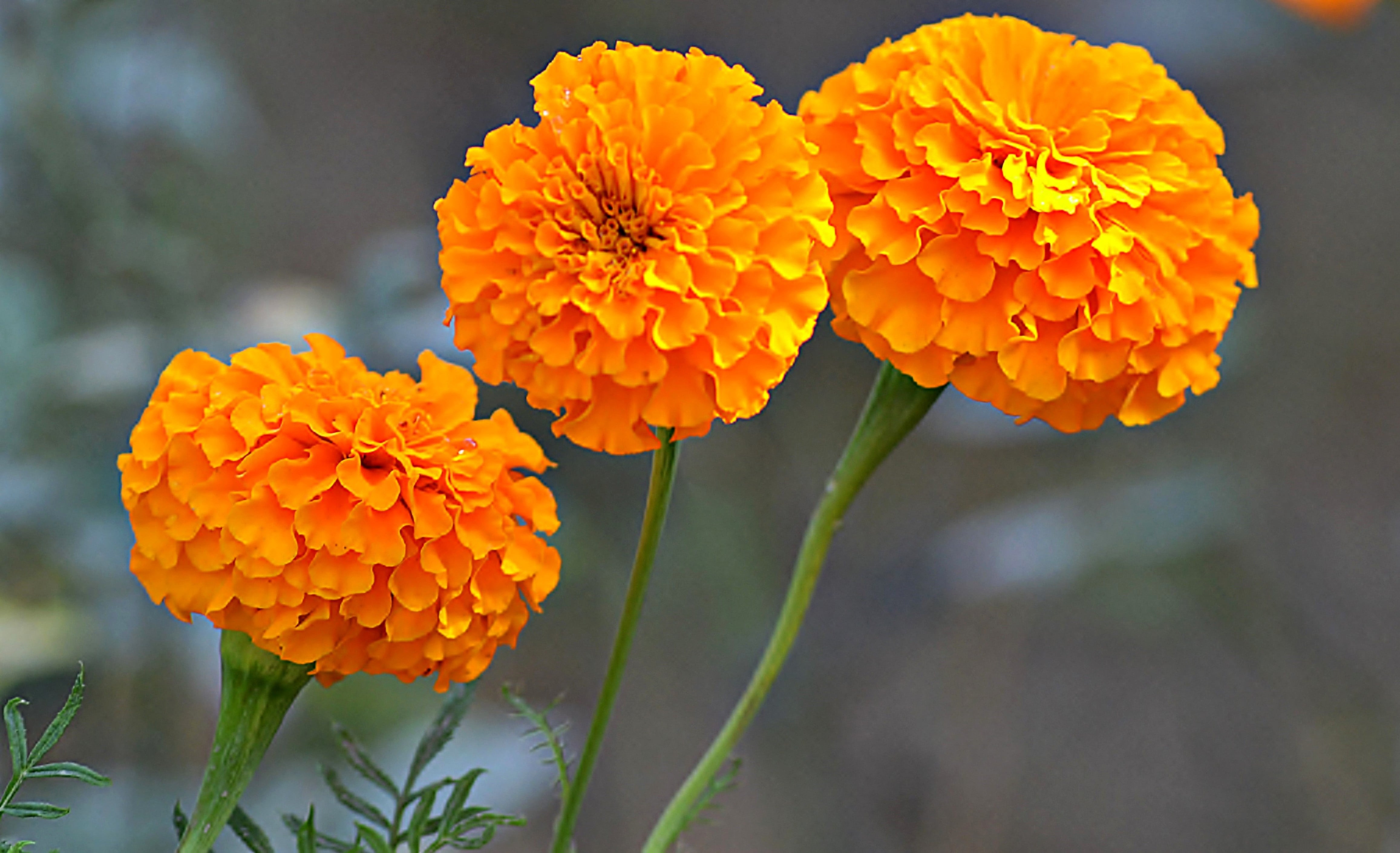
If you discover a wasp nest near your home, you’ll want to remove it ASAP. Learn wasp nest removal cost factors in this guide.
Board up the bunny buffet with these tips


Rabbits are cute—adorable, even—however, they can wreak havoc on your garden. Learning how to keep rabbits out of your garden can save your plants from these floppy-eared bandits.
These insatiable long-eared critters chew on plants, dig up tender shoots, and destroy produce in record time, but there are ways to prevent them from infiltrating your spot or even choosing it in the first place. If you’re tired of your prized crops becoming a bunny buffet, here’s how to get rid of rabbits.
Rabbits often visit gardens based on what’s on the menu. They have a penchant for devouring various plants, particularly those with tender foliage and vibrant blooms. Vegetables like carrots, lettuce, leafy greens, and broccoli are top choices, but they won’t hesitate to nibble on flowers and herbs, too.
Aside from that, rabbits are also timid creatures who like to be near places where they can safely take cover. If you have tall grass or dense shrubbery nearby, they’ll likely be attracted to the cover to stay hidden from predators between munching sessions. Also, if your garden is completely unprotected and out in the open, they can be drawn in by the easy meal ticket.
Besides spotting the fluffy offenders themselves, there are a few telltale signs of rabbit presence in a garden. When inspecting your plants for potential rabbit damage, keep an eye out for neatly severed leaves and stems. This precise damage contrasts with the jagged edges typically left behind by insects and other pests. Note that rabbits mostly feed near ground level, so if the damage is low to the ground, it could be a sign that they’ve been feasting on your garden.

If rabbits won’t stop targeting your garden, here are the best ways to intervene.
One of the most effective ways to keep rabbits out of your garden is to build physical barriers to block them. Opt for a chicken wire fence, as it’s known to be one of the most effective barriers against rabbits. Then, dig a narrow trench that’s at least six inches deep to ensure the animals won’t be able to slip in from the bottom. If you also want to keep deer out of the garden, consider building a solid-walled fence at least six feet tall for maximum protection.
If it’s not practical or necessary to build a large fence around your garden, consider building barriers around your most vulnerable plants. Chicken wire is a quick and budget-friendly DIY solution for surrounding the plants you don’t want rabbits to munch on, especially vegetables.

Rabbits are casual grazers that prefer to stay low to the ground, so they’re less likely to go after your plants if they’re elevated. Building a DIY raised garden bed can reduce the level of rabbit activity around your plants. For extra rabbit-proofing, surround your raised garden beds with chicken wire.

You can purchase commercial rabbit-repellent sprays, or you can opt for a DIY solution such as hot pepper sauce mixed with a bit of water in a spray bottle. You can also sprinkle chopped garlic, hot peppers, or onions around your garden to help repel rabbits. As a bonus, these may help reduce your pest control cost overall, as these repellents can discourage insects and other critters from munching on your plants, too.

If you’re wondering how to get rid of rabbits, another good option is planting crops they aren’t fond of. Surround your vegetable patches with pungent bulbs like garlic and onions to deter rabbits with the scent. Rabbits also typically won’t touch plants like rosemary, lavender, zinnias, daffodils, and peppers.
Still struggling to deter rabbits from munching on your plants? Try following these helpful tips:
Remove any piles of leaves and brush that could potentially become nesting spots.
Fill holes and block off spots that could become rabbit burrows around your property.
Consider investing in the cost to build a fence around your property to keep out rabbits and other wildlife.
Routinely inspect your garden for signs of rabbit damage and address any breaches in your deterrents promptly.
DIY solutions can often be effective for keeping rabbits out of your garden, but there are limitations. Some pest control companies offer rabbit control services, primarily in cases of severe infestations or if other control methods have proven ineffective. If you're facing persistent rabbit issues in your garden, a local wildlife control professional can provide valuable insights and potential solutions. They can also help with the humane and ethical removal of the animals if they’ve taken up residence in your home, shed, or other structures on your property.
The average animal removal cost is between $200 to $600. While rabbits aren’t the typical reason you’d call for professional wildlife removal, professional assistance is an option if you need to have them removed.
Rabbits are among the other small animals that make up 24.62% of wildlife control visits. Raccoons, squirrels, skunks, and possums are much more common, accounting for over 50% of pest control treatments combined. Other animals, like deer, birds, and foxes, are occasionally treated by pros.
From average costs to expert advice, get all the answers you need to get your job done.

If you discover a wasp nest near your home, you’ll want to remove it ASAP. Learn wasp nest removal cost factors in this guide.

Whether you have bugs, bats, or rodents invading your home, you’ll want to contact an exterminator quickly. Find out how much pest control costs in Columbus, OH.

It’s important to know bed bug treatment costs if you have an infestation. Our guide covers different treatment methods and cost factors to eliminate these pests.

Honey bees are crucial to the ecosystem, but it’s normal not to want them near your space. Learn how to get rid of honey bees without harming them.

Stuck with a termite infestation? There are many options to kill off these pests. From bait to wood treatments, find the best types of termite treatment for you.

Bees with a hive in your wall cavity present a host of problems: Our guide will show you the best ways to remove them safely, especially if you want to save the bees.